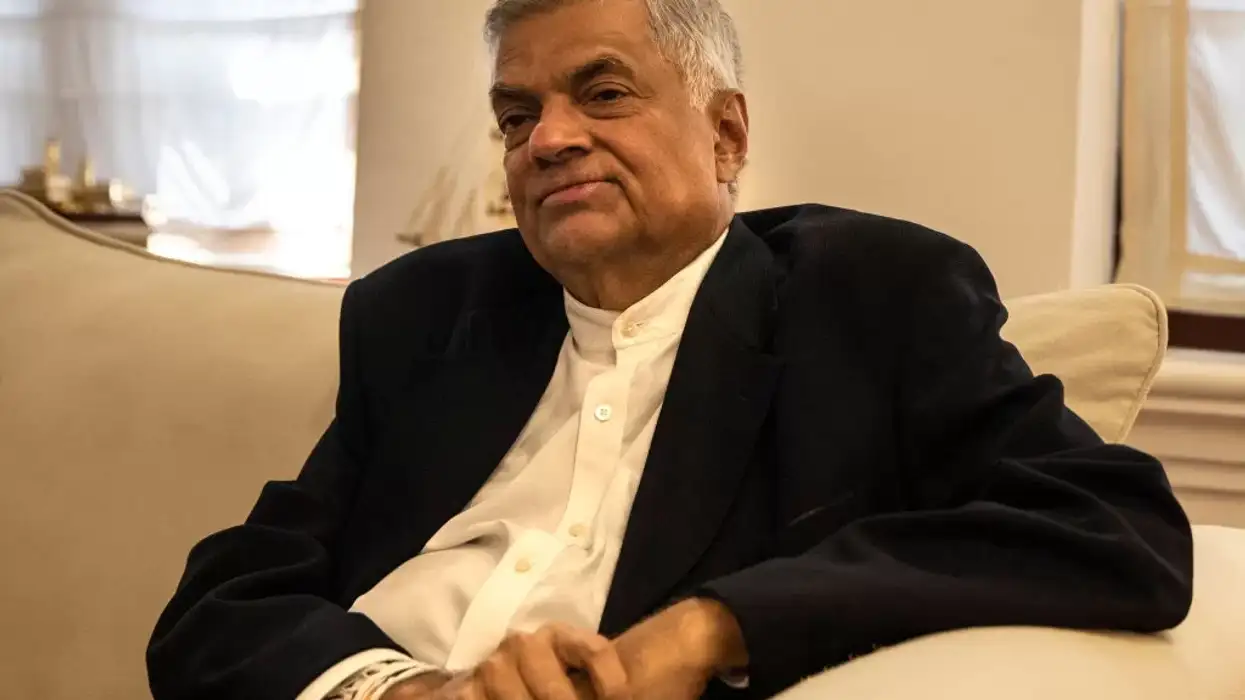Sri Lankan president Ranil Wickremesinghe on Sunday (11) said that the government will not oppose the private member's Bill presented to parliament to decriminalise homosexuality, however, the Bill will require the support of individual members of parliament.
"We are for it, but you have to get the support of individual members. It's a matter of their private conscience," he said. According to Colombo Gazette, the president expressed these views during talks with the administrator of the United States Agency for International Development (USAID), Samantha Power in Colombo.
A Bill to amend the Penal Code with the aim of protecting the rights of the LGBTQ+ communities in Sri Lanka was handed over to president Ranil Wickramasinghe last month by attorney-at-law and parliamentarian Premnath C. Dolawatte.
The Penal Code (Amendment) (19th Act) Bill to amend the Penal Code was also submitted to parliament by Dolawatte as a private member's Bill.
The LGBTQI community in Sri Lanka had questioned the commitment of the government to address issues faced by the community despite the private member's Bill submitted by MP Premnath Dolawatte.
Issuing a statement, the LGBTQI+ community of Sri Lanka and their allies welcomed the private member's Bill by Dolawatte to decriminalise same-sex sexual activity between consenting adults by amending sections 365 and 365A of the Penal Code.
However, the LGBTQI community noted that the Bill comes amid a number of disturbing developments that directly impact the LGBTQI+ Sri Lankans, Colombo Gazette reported.
Earlier, this year, a United Nations treaty body called on Sri Lanka's government to repeal its law criminalizing adult, consensual same-sex conduct - including between women.
According to a Human Rights Watch report, the case was brought under the Convention on the Elimination of All Forms of Discrimination against Women (CEDAW) by Rosanna Flamer-Caldera, an LGBT rights activist who faced harassment and discrimination for her sexual orientation and human rights advocacy on behalf of sexual and gender minorities.
Many countries only criminalise same-sex relations between men, and at least 38 countries criminalise same-sex conduct regardless of sex or expressly criminalise sexual conduct between women. At least 10 countries have, since 1986, explicitly enacted laws that criminalise sex between women as well as men, sometimes perversely framing this as a gesture toward equality - such as in the case of Sri Lanka.
Around the world, laws that criminalise same-sex relations are being repealed as courts and governments recognise they are discriminatory and harmful - including the Indian Supreme Court striking down penal code section 377 in 2018.
In a 2016 report, Human Rights Watch documented that Sri Lanka's penal code casts a shadow over LGBT people's lives, impacting their ability to access health care and housing, and creating pressure to conceal and conform to their identities.
Meanwhile, US administrator Samantha Power arrived in Sri Lanka on Saturday (10) for a two-day official visit. The US Embassy in Sri Lanka said that the purpose of the visit is to discuss the ongoing economic crisis and strengthen the development partnership between the United States and Sri Lanka.
Powar met with Sri Lankans dealing with the impacts of the current complex emergency, private sector leaders, civil society organizations, and government officials. The administrator emphasised the United States' commitment to supporting the Sri Lankan people during this difficult time and partnering with them to build long-term economic stability and prosperity.
The administrator travelled to Ja-Ela, a town outside Colombo, and visited rice paddy fields where she sat down with farmers to hear about their experiences coping with fertilizer shortages, inflation, and decreased wages, USAID said in a press release.
The administrator then held a press conference and announced USD 40 million (£34.2 million) in new USAID development assistance, subject to Congressional approval, to provide fertilizer to approximately one million Sri Lankan farmers.
They spoke about how the lack of fertilizer was affecting their harvest and the impact it was having on their families.
The administrator then attended a working dinner with private sector representatives from Sri Lanka's finance, technology, pharmaceutical, and renewable energy sectors to discuss the country's path to economic revival and the critical role of public-private partnerships, the release added.




